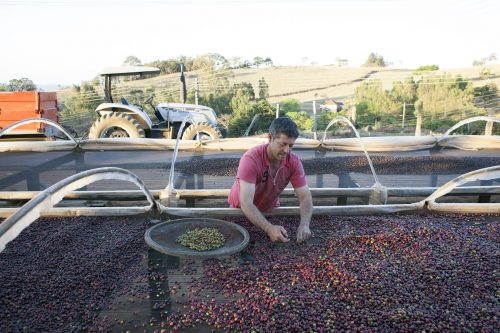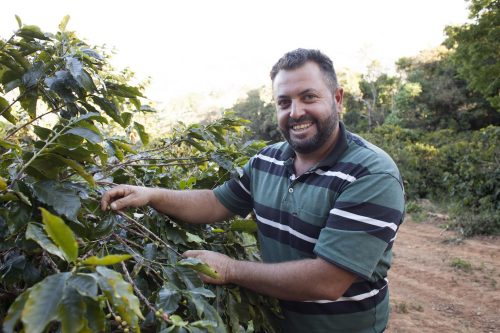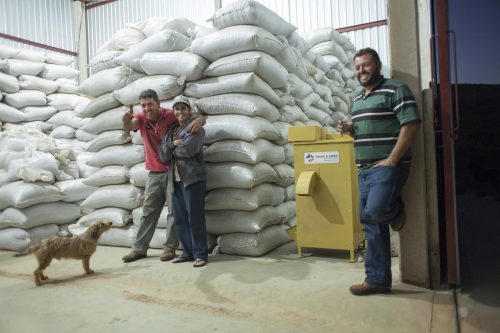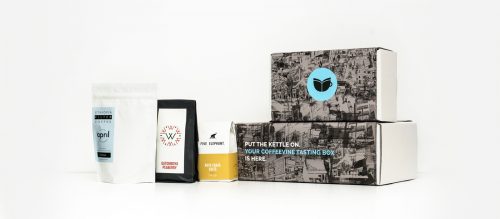July Brew Guide – Recipes From Our Roasters + Brewing Tips
Enjoy the delicious coffees from our July 2025 edition with this handy brew guide. Explore recipes from our roasters and handy tips.
Brazilian coffees are tricky, you know. While Brazil may be the biggest coffee producing nation in the world, it doesn’t feature very highly on the list of countries growing exquisite specialty coffees. This is partially due to the fact that most of Brazil’s coffee growers are huge estate owners who can only keep their businesses afloat through mass-production. The other reason is that Brazil’s coffee growing regions are generally lower-lying than their Central American or African counterparts. Just to name a few.

When Five Elephant recently suggested that we should include their Novo Canaã Obata in our most recent blind cupping to select the coffees for our March ’17 box, we were only sceptical because of Brazil’s reputation of producing ok-ish single origins that are best used in blends or as espresso roasts. But a natural Brazil for filter? Like, for filter, filter?
Five Elephant founder Kris Schakmann explained: “We’ve been working with João Hamilton and the guys of Fazenda Ambiental Fortaleza on their other farms and around five years ago, we cupped a very small amount of the Obata varietal that was growing on a small area of Sitio Canaã. The cup profile frankly blew our minds and we have been encouraging the team to produce more of this coffee, which was originally propagated as a drought and disease resistant coffee in Brazil.”

What was particularly striking during our most recent blind-cupping was that none of our experienced tasters thought this coffee was a Brazil. Indeed, it was mostly allocated to Ethiopia, Panama and Kenya. When we revealed its origin, everyone’s jaw dropped.
Kris went on to explain: “The Obata we had tasted on other farms had not cupped like this one and we found the tropical fruit characteristics in the cup to be strikingly different to any of the Bourbons, Icatus, and Catuais that the producers were known for.”

We tasted layers of juicy mango, passionfruit, guava and piloncillo, a Mexican dark sugar that reminds you of caramel. And, as the coffee cooled it became even more striking.
“The true character can be enjoyed as the coffee cools below 50°C,” Kris offered.
Without a doubt, this natural Brazil has been one of the most unusual and layered coffees we’ve tasted and selected for one of our coffee boxes and we cannot wait to share it with you this month.

For our espresso customers, we have a different Brazil. One that comes Fazenda Ambiental Fortaleza that we mentioned earlier in this article. It offers notes of toffee, almonds, dried plum with yellow stone fruit acidity.
Don’t miss out on our upcoming coffee boxes!
Every month, we feature three spectacular coffees from the likes of: La Cabra, Drop Coffee, The Barn, Workshop Coffee, The Coffee Collective, Tim Wendelboe and more.
“An absolute must-have for making great coffee” – BBC GOOD FOOD
Enjoy the delicious coffees from our July 2025 edition with this handy brew guide. Explore recipes from our roasters and handy tips.
Looking for a fun opportunity to work closely with some of the world’s best coffees? Then this new role is for YOU! Check out the details.
Get a taste of Penang’s finest roaster Tongue Mission. This is the first time this fine Malaysian newcomer is featured in The Coffeevine!
Meet the finest roaster from Buenos Aires who is making its exclusive Coffeevine debut as the first Argentinean roaster this July
Subscribe to our newsletter for new box announcements, articles and special offers. No spam. Promise!
© 2025 All rights reserved The Coffeevine.
